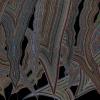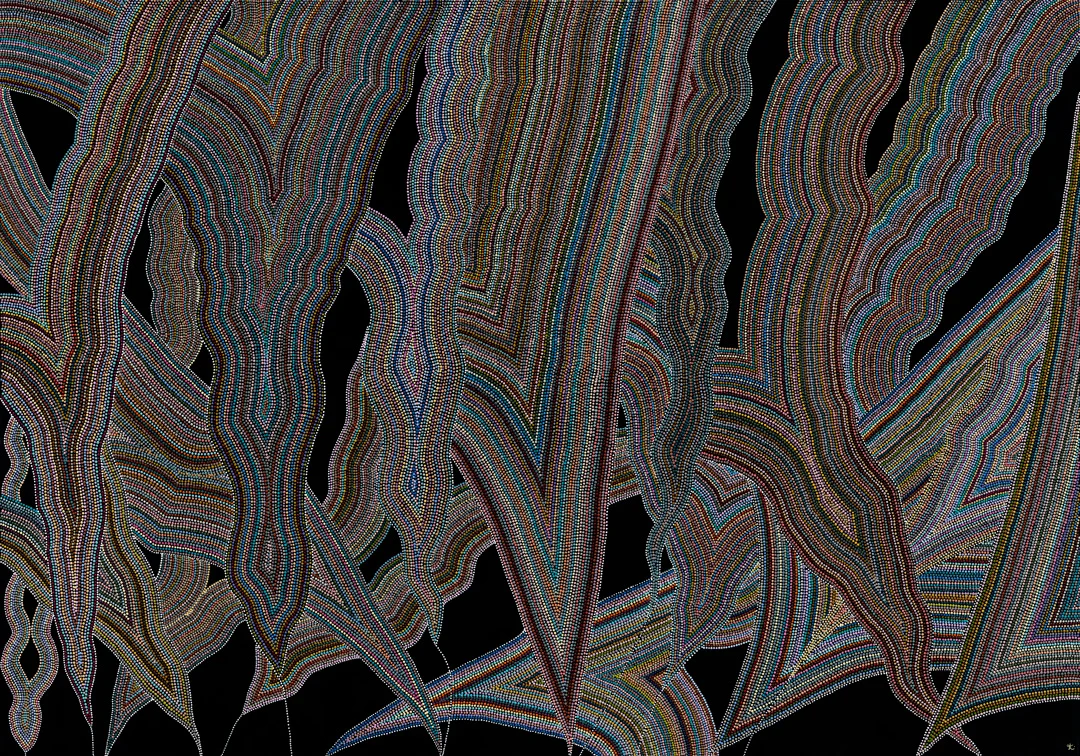Konstantina, whose real name is Kate Constantine, is a contemporary Aboriginal artist descended from the Gadigal people. Her work tells the true story of her people. She is passionate about her language, culture and history, much of which has been lost since colonisation. She is actively involved in revitalising the Gadigal language, working with the University of Sydney, for example, to revive the original language of the Eora Nation. She reimagines the traditions of her people's painters and offers a modern narrative that enables all Australians to better understand that Aborigines are an integral part of the Australian fabric.
With the Mapping Mobs (Language maps) series, Konstantina highlights the complexity of language groups in Australia, which she maps in the form of overlapping or intertwining dotted lines of colour.
‘Aborigines and Torres Strait Islanders belong to numerous kinship groups. It is this complex kinship system, governed by thousands of years of family interactions, marriages, protocols and customs, that allows us to understand where we are in the matrix. The group to which you belong also dictates your understanding of the language (or languages), with many people speaking five or six languages before English. It is this tangled beauty of ancestry, history and shared stories that these group maps depict by region within our great and beautiful Ngura.’
Here, Konstantina represents the 95,714 mobs* (families) in New South Wales who currently identify as Aboriginal. This painting invites them to enter the New South Wales Parliament for the very first time in history.
*Mob is a term defined as ‘a large crowd of people, especially one that is disorderly and intends to cause trouble or violence’. Not surprisingly, the Aboriginal definition and use of the word is very different from the Western definition. It connects us to both people and places.
‘Parliament has not always been a place of equality for my Aboriginal brothers and sisters, it has even been a source of disrespect and trauma. I dare to dream, I dare to hope that in 2024, this invitation will be approved by Parliament and it will be extended to all those who are represented by every dot on this board.’
KONSTANTINA
95714 (Funnels) , 2024
Art : Aboriginal
Origine : Byron Bay
Dimensions : 200 x 140 cm
Medium : Acrylic on canvas
Price : VENDUE / SOLD
VENDUE
/ SOLD
N° : 4606

